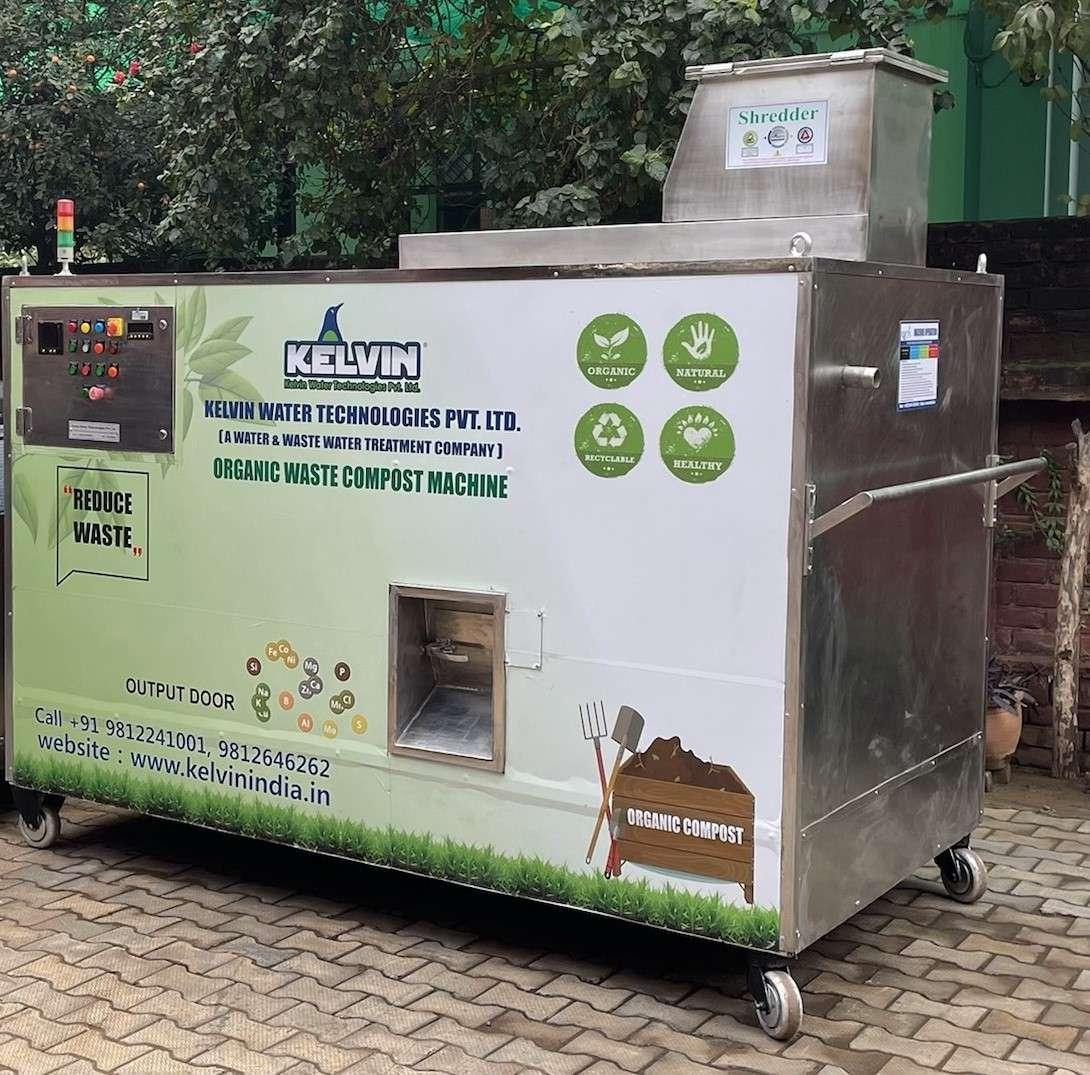Organic Waste Composter is a device used to break down organic waste materials like food scraps & other biodegradable into nutrients rich compost.
Composting is a natural process that involves the decomposition of organic matter by microorganisms like bacteria, fungi, and earthworms. Organic waste composters facilitate and accelerate this process, turning organic waste into a valuable soil amendment that can be used to enrich garden soil and improve plant growth.
Type of Organic Waste
- Food Waste: This includes kitchen scraps like fruit and vegetable peels, leftovers, spoiled food, and coffee grounds.
- Yard Waste: Organic waste from yard maintenance, such as grass clippings, leaves, branches, and pruning trimmings.
- Agricultural Waste: Crop residues, manure, and other organic materials generated by farming activities.
- Animal Waste: Waste from animals, such as livestock manure, poultry litter, and pet waste.
- Paper Products: Certain paper products, like paper towels, napkins, and uncoated paper plates, are considered organic waste because they can be composted.
- Textiles: Natural fibres like cotton, linen, and wool are organic and can be composted if they are not blended with synthetic materials.
- Plant Trimmings: Trimmings from trees, shrubs, and plants in gardens or landscaping.
- Coffee Grounds: Used coffee grounds are a common form of organic waste and are rich in nitrogen, making them excellent for composting.
- Tea Bags: Many tea bags are made from paper and contain organic material (tea leaves), so they can be composted if they are free of synthetic materials.
- Biodegradable Packaging: Some biodegradable or compostable packaging materials are made from organic materials like cornstarch or sugarcane.
- Human Waste: Human waste from composting toilets or specialized composting systems can be considered organic waste.
How does Organic Waste Composter Work?
- Collection: Organic waste materials, such as kitchen scraps (e.g., fruit and vegetable peels, coffee grounds, eggshells) and yard waste (e.g., leaves, grass clippings), are collected and placed in the composter. Some composters are designed for indoor use, while others are meant for outdoor applications.
- Decomposition: Inside the composter, microorganisms naturally present in the waste, as well as those introduced by the composter's design, break down the organic matter. These microorganisms require oxygen (aerobic decomposition) or can work without it (anaerobic decomposition), depending on the type of composter.
- Temperature and Moisture Control: Composters often have features to regulate temperature and moisture levels. Maintaining the right balance of moisture and aeration is crucial for efficient composting.
- Mixing and Turning: Some composters have mechanisms for mixing or turning the compost to promote even decomposition and aeration. This can be done manually or automatically, depending on the composter's design.
- Maturation: Composting typically takes a few weeks to several months, depending on the composting conditions and the type of waste being processed. During this time, the organic matter transforms into nutrient-rich compost.
- Harvesting: Once the composting process is complete, the mature compost is ready to be harvested and used in gardening or landscaping to improve soil fertility and structure.
How can we reduce organic waste?
Composting:
Home Composting: Compost food scraps, yard waste, and other organic materials at home. Use a backyard compost bin or a vermicomposting system if space allows.
Food Storage:
Store food properly to extend its shelf life. Use airtight containers, sealable bags, and proper refrigeration.
Food Donation:
Give excess food to food banks, shelters, or charitable organizations that distribute it to those in need.
Education and Awareness:
Learn about the issue of food waste and share knowledge with friends and family. Encourage responsible consumption and disposal habits.
Meal Services and Portion Control:
Encourage restaurants, schools, and cafeterias to implement portion control and reduce food waste in their operations.
Reducing Packaging:
Buy items in bulk or with minimal packaging to reduce packaging waste.
Waste Audits:
Conduct waste audits at home, in schools, or at businesses to identify areas where organic waste can be reduced.
Technology:
Explore apps and tools that help track food inventory, plan meals, and reduce food waste.
Why do we need organic waste composter?
- Reduction of Landfill Waste
- Production of Nutrient-Rich Compost
- Improved Soil Health
- Reduction of Greenhouse Gas Emissions
- Cost Savings
- Resource Conservation
- Community and Educational Benefits
- Composting helps close the nutrient cycle by returning organic matter and nutrients back to the soil.
Conclusion
Organic Waste Composter are essential tools for managing organic waste in an environmentally responsible and sustainable manner. They help reduce greenhouse gas emissions, enrich soil, save resources, and promote sustainable agriculture and gardening practices while reducing the burden on landfills and waste disposal systems.


No comments yet